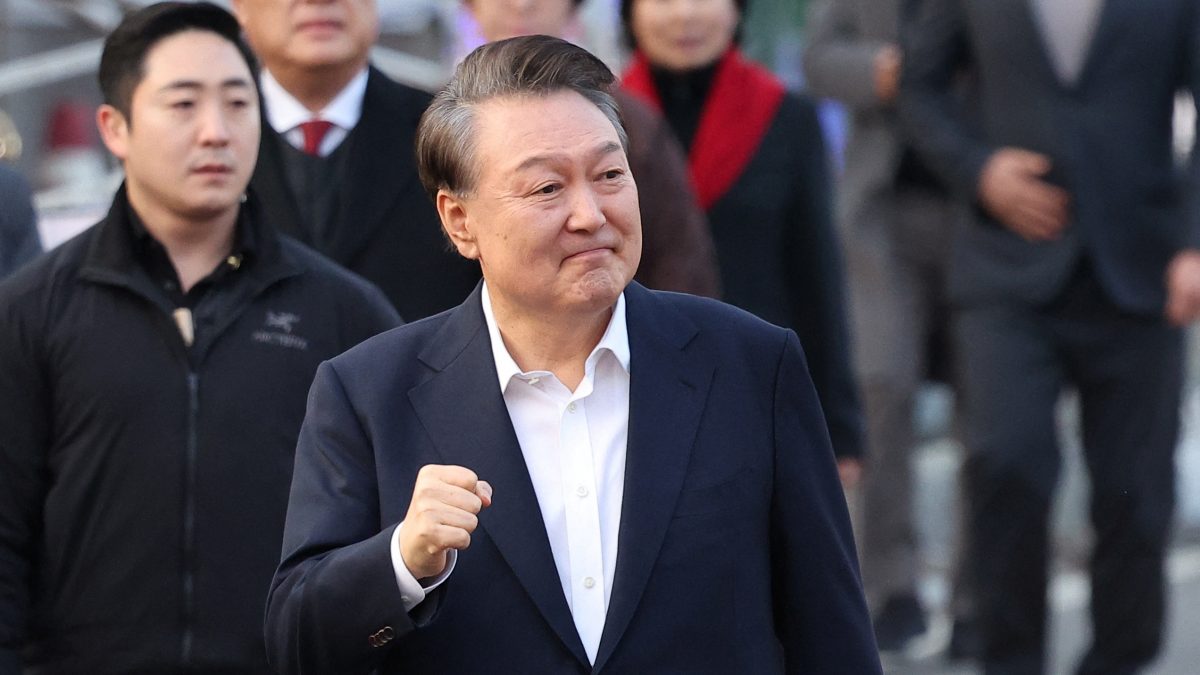Impeached South Korean President Yoon Suk Yeol was freed from detention on Saturday when a judge overturned his arrest on procedural grounds; nevertheless, he is still being investigated for declaring martial law.
The suspended president, who was apprehended in a dawn raid in January on insurgency charges stemming from his December 3 attempt to overthrow civilian government, came out of the jail facility smiling before bending deeply in front of a small band of applauding supporters.
“I bow my head in gratitude to the people of this nation,” Yoon said in a statement released through his lawyers.
A court had dismissed his arrest order the day before on technical and legal reasons, a move that prosecutors investigating Yoon described as “unjust” in a statement released on Saturday.
Yoon was released when prosecutors forfeited their ability to challenge the court’s decision, which was based on technical elements of his criminal imprisonment.
Yoon is also facing a separate Constitutional Court verdict on whether to sustain his impeachment and formally remove him from office, with the court’ decision likely any day.
Prosecutors said that “given the Constitutional Court’s ruling and related considerations, the Prosecutor General has instructed the team to actively present its arguments before the trial court instead,” of appealing Yoon’s release from detention.
South Korea must hold a fresh presidential election within 60 days if Yoon is removed.
The criminal case against him will continue even if he is formally stripped of office.
Impact Shorts
More Shorts‘Restoration of rule of law’
Yoon’s lawyers, who had filed a request to cancel his arrest last month arguing his detention was unlawful because the prosecution waited too long to indict him, hailed his release.
“The president’s release signifies the restoration of the rule of law,” his legal team said in a statement.
Yoon got into a convoy of vehicles and drove straight to the presidential residence, AFP reporters saw, getting out of his car outside the presidential compound to greet the hundreds of cheering supporters waiting outside.
The opposition slammed the decision, with Democratic Party leader Lee Jae-myung saying at a rally that they would “fight until the insurrection is over”.
Yoon, a former prosecutor, plunged democratic South Korea into turmoil in December by briefly suspending civilian rule and sending soldiers into parliament.
He has been charged with insurrection for his martial law declaration, which lawmakers voted down within hours before impeaching him.
The 64-year-old resisted arrest for two weeks, in a tense standoff between his security team and investigators at his official residence in Seoul. He was finally taken into custody on January 15.
Much of the impeachment trial has centred on whether Yoon violated the constitution by declaring martial law, which is reserved for national emergencies or times of war.
The opposition has accused him of taking the extraordinary measure without proper justification.
Yoon’s lawyers have said he declared martial law to alert the country to the dangers of “legislative dictatorship” by the opposition.


)

)
)
)
)
)
)
)
)



